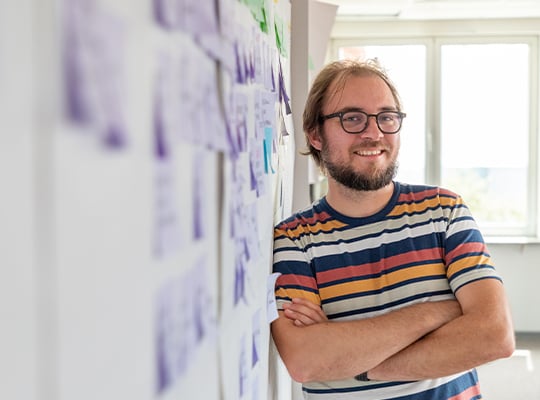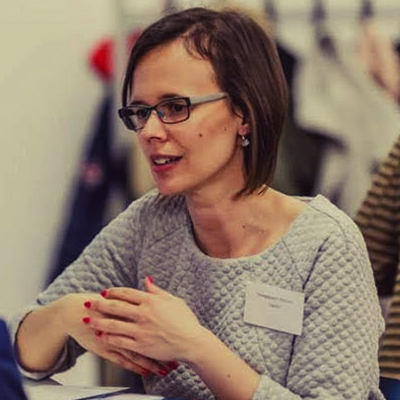In our Social Impact division, you have the opportunity to work on engaging and meaningful projects. We work with driven project teams. You can continuously learn and experiment with the latest technologies. The division believes in Agile values and applies them. There is an open culture and focus on personal development, well-being, and fun at work.

Within the Social Impact division, we develop socially relevant applications that are strongly linked to social security and the public sector. As citizens, we all come into contact with these applications almost daily (sometimes without realizing it).
Self-employed individuals' social contributions are accurately calculated and their administration is monitored, grants are calculated and automatically awarded, companies' payroll administration is expertly supported, all thanks to the applications developed by Cegeka.
The EverESSt payroll engine is a joint initiative by Cegeka, Acerta, and Group S. Together, we are developing a cutting-edge payroll engine tailored for the Belgian market, designed to support the digital transformation of the HR landscape.
At its core, a payroll engine is responsible for accurately calculating salaries. This process starts with determining the right to gross pay and ends with delivering the correct net salary — all while complying with legal requirements and the various wage systems in place in Belgium.
But it doesn’t stop there. The payroll engine also handles all mandatory declarations related to taxes and social security. It manages data flows to banks, meal voucher providers, pension funds, and many other external partners.
Today, most social secretariats still rely on payroll engines built on mainframe technology that is 20 to 30 years old. While these systems have proven reliable over the years, they are becoming outdated and increasingly difficult to adapt.
That’s why, in collaboration with Acerta and Group S, we are building an entirely new payroll engine for Belgium. This is not just an upgrade — it’s a complete redesign from the ground up, leveraging modern technology with a strong focus on performance, flexibility, and cost-efficiency.
In short: with EverESSt, we are creating a modern payroll engine that ensures the accurate processing of over 500,000 salaries in Belgium every day. Together, we are making a real impact on the lives of hundreds of thousands of people and actively contributing to the digital evolution of the HR sector.
By doing what we're good at: building high-quality software using our Agile mentality and best development practices.
The technology stack is Java-based, and the applications run entirely containerized on a Kubernetes-based platform, utilizing an automated CI/CD process. The challenges lie in both functional requirements and operational requirements (NFRs), including, most importantly, performance, scalability, and maintainability.
We use techniques such as DDD (Domain-Driven Design), TDD (Test-Driven Development), and BDD (Behavior-Driven Development) within a modular architecture that utilizes microservices.
Joris Vertommen, Directeur Social Impact
Ventouris is a cost-sharing initiative for 8 out of the 10 social insurance funds in Belgium. Cegeka has a long-term contract with these funds and, through smooth collaboration over time, we have built an excellent trust relationship.
Ventouris is a future-proof administrative system that supports dossier managers in their daily tasks. The application has thousands of users who handle the files of more than one million active self-employed individuals and thousands of active companies.
We work with a team of approximately 40 motivated employees to keep the Ventouris application functionally, legally, and technically up to date.
Through workshops with clients, we contemplate new future users and their needs and how this translates into new architectural requirements, functionalities, and devices. In this way, we continue to invest in an application that remains relevant in the future.
One of the powers that Brussels acquired after the sixth state reform was the authority for the elderly assistance allowance (THAB). The institution Iriscare faced the challenge of developing the application in the short term to request, manage, and pay the allowance. With Cegeka in the lead, this was accomplished.
The architecture of Iriscare's applications is built around microservices. Thanks to this architecture, the applications are scalable, and Iriscare's application landscape is ready for future expansions.
Below, you can view the customer testimonial.
"The Office Games are a monthly initiative where we organize low-threshold sports and game activities on our office premises during the lunch break. Some examples include basketball, kubb, ping pong, badminton... I believe it's important to organize the Office Games to provide a relaxing moment during the lunch break. It's the ideal opportunity to connect with colleagues from different teams.
After an Office Games afternoon, the energy level is always higher than on other days, and we can all return to work with full attention and productivity. The Office Games definitely contribute to a good relationship with colleagues and provide a boost for workplace enjoyment."
- Katrien Van de Vonder (Department Manager Social Impact)
.png?width=2048&name=MicrosoftTeams-image%20(50).png)
Send our recruiter Marlies an email with your question.

Marlies Vanspauwen